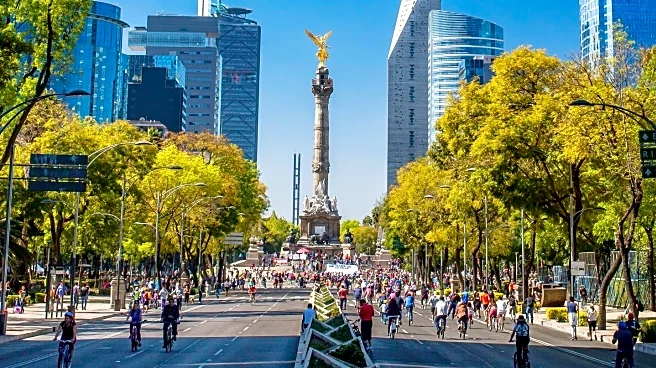What's Happening?
Mexico City recently hosted its annual Zombie Walk, an event that has grown from its origins in California in 2001 to become a global cultural phenomenon. Thousands of participants dressed as zombies shuffled
through the streets, creating a scene reminiscent of a horror film. This event is part of a broader trend where similar zombie walks are held in cities worldwide, showcasing the widespread appeal and cultural impact of this unique tradition.
Why It's Important?
The Zombie Walk in Mexico City underscores the global reach of cultural events that originated in the United States. It highlights how American cultural phenomena can influence and integrate into international traditions, fostering cross-cultural exchanges. Such events can boost local tourism and economy by attracting participants and spectators from various regions. Additionally, they serve as a platform for creative expression and community engagement, allowing individuals to participate in a shared cultural experience.
What's Next?
As the popularity of zombie walks continues to grow, cities around the world may increasingly adopt similar events, further expanding the cultural footprint of this tradition. Organizers might explore partnerships with local businesses and tourism boards to enhance the event's appeal and economic impact. Additionally, there could be opportunities for themed merchandise and media coverage, further solidifying the event's place in global cultural calendars.
Beyond the Headlines
The Zombie Walk phenomenon raises interesting questions about the cultural exchange and adaptation of traditions across borders. It reflects how global communities can embrace and reinterpret cultural practices, leading to new forms of social interaction and entertainment. This trend also highlights the role of media and social networks in spreading cultural events, allowing them to gain traction and evolve in diverse settings.









